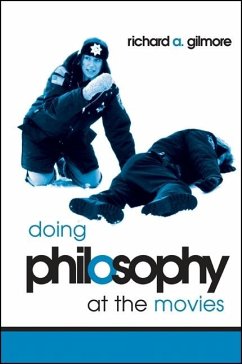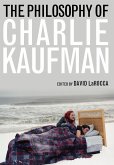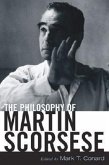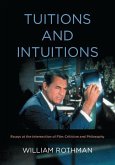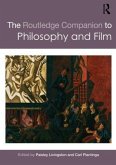"Doing Philosophy at the Movies finds the roots of profound philosophical ideas in the relatively ordinary context of popular, mostly Hollywood, movies. Richard A. Gilmore suggests that narratives of popular films like Hitchcock's "Vertigo, John Ford's "The Searchers, Woody Allen's "Crimes and Misdemeanors, the Coen Brothers' "Fargo, and Danny Boyle's "Trainspotting mirror certain epiphanies in the works of great philosophers. Via Plato. Aristotle, Kant, Nietzsche, Wittgenstein, and Zizck. Gilmore addresses such themes as the nature of philosophy, the possibility of redemption through love, catharsis, the sublime, and the human problem of death. Gilmore argues that seeing these movies through the lens of certain philosophical ideas can show how deeply relevant both philosophy and the movies can be.
Hinweis: Dieser Artikel kann nur an eine deutsche Lieferadresse ausgeliefert werden.
Hinweis: Dieser Artikel kann nur an eine deutsche Lieferadresse ausgeliefert werden.

